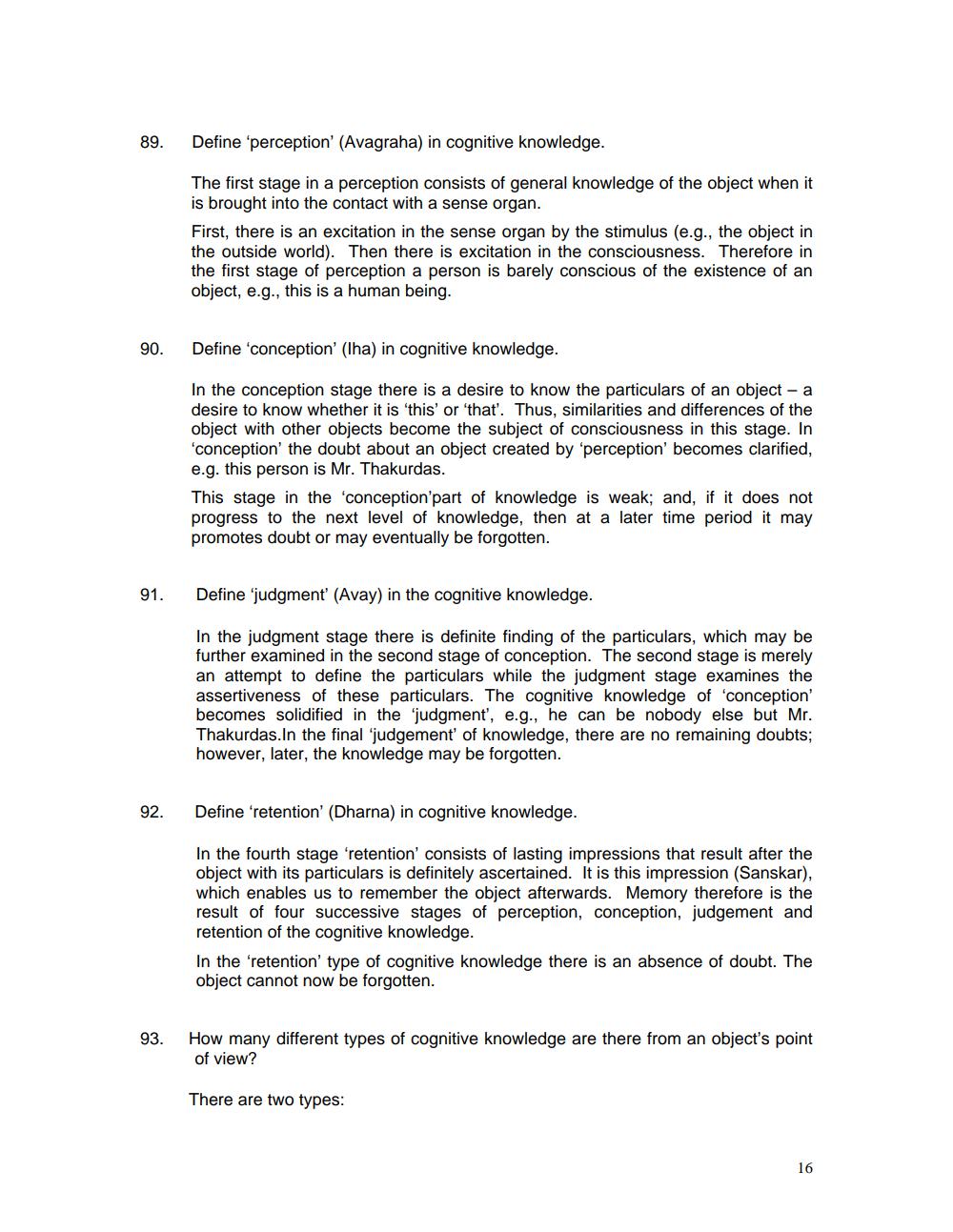________________
89.
Define 'perception' (Avagraha) in cognitive knowledge.
The first stage in a perception consists of general knowledge of the object when it is brought into the contact with a sense organ. First, there is an excitation in the sense organ by the stimulus (e.g., the object in the outside world). Then there is excitation in the consciousness. Therefore in the first stage of perception a person is barely conscious of the existence of an object, e.g., this is a human being.
90.
Define 'conception' (Iha) in cognitive knowledge.
In the conception stage there is a desire to know the particulars of an object - a desire to know whether it is 'this' or 'that'. Thus, similarities and differences of the object with other objects become the subject of consciousness in this stage. In 'conception' the doubt about an object created by 'perception' becomes clarified, e.g. this person is Mr. Thakurdas. This stage in the conception'part of knowledge is weak; and, if it does not progress to the next level of knowledge, then at a later time period it may promotes doubt or may eventually be forgotten.
91.
Define 'judgment' (Avay) in the cognitive knowledge.
In the judgment stage there is definite finding of the particulars, which may be further examined in the second stage of conception. The second stage is merely an attempt to define the particulars while the judgment stage examines the assertiveness of these particulars. The cognitive knowledge of 'conception' becomes solidified in the judgment', e.g., he can be nobody else but Mr. Thakurdas.In the final 'judgement' of knowledge, there are no remaining doubts; however, later, the knowledge may be forgotten.
92.
Define 'retention' (Dharna) in cognitive knowledge.
In the fourth stage 'retention' consists of lasting impressions that result after the object with its particulars is definitely ascertained. It is this impression (Sanskar), which enables us to remember the object afterwards. Memory therefore is the result of four successive stages of perception, conception, judgement and retention of the cognitive knowledge. In the 'retention' type of cognitive knowledge there is an absence of doubt. The object cannot now be forgotten.
93.
How many different types of cognitive knowledge are there from an object's point of view?
There are two types:
16




